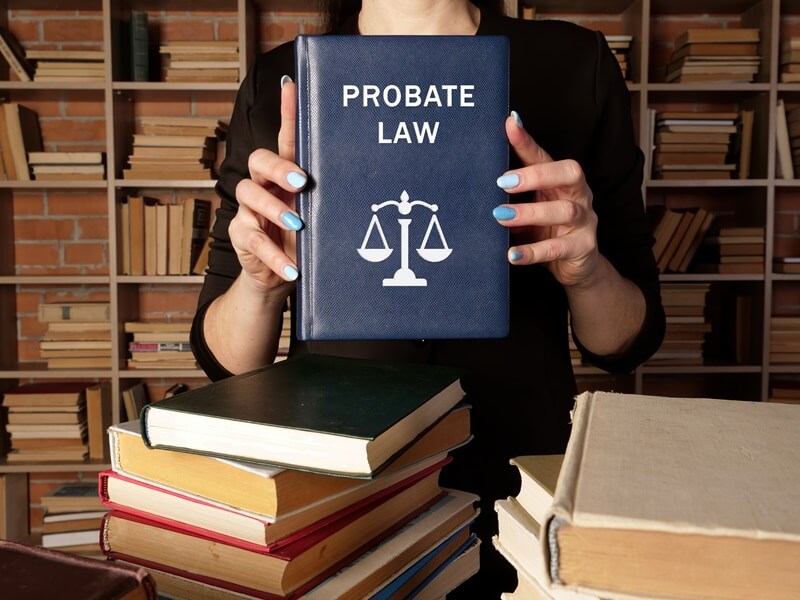How To Protect Estate Assets During Probate In California
Probate can feel like untangling a knotted rope, but it becomes a manageable process with the proper knowledge and guidance. Executors and beneficiaries in California often face questions about navigating the process efficiently while protecting assets from potential risks such as mismanagement and disputes.
This guide explains probate, highlighting its essential steps and offering practical strategies to safeguard assets throughout the process. Here, you’ll learn the valuable role of a skilled attorney in navigating probate administration effectively.
Overview Of Probate In California
Probate is a court-supervised process designed to settle a deceased person’s estate. Its primary purpose is to ensure that assets are distributed according to the decedent’s wishes if there’s a valid will. If there isn’t one, California’s intestacy laws will apply. Think of it as a formal way to tie up loose ends.
In California, the process begins with filing a petition in probate court. This step initiates the legal proceedings to identify and distribute assets. Executors or administrators oversee the estate and ensure all obligations are addressed before distributing the remainder to heirs.
The probate process varies in length depending on the estate’s complexity and whether disputes arise. California law sets specific requirements for filing timelines, creditor notifications, and tax obligations. Missing these can cause delays or even legal penalties.
While probate is thorough, it can feel burdensome due to the documentation and oversight involved. Many families find comfort in knowing the process helps prevent fraud and ensures fairness in asset distribution. Understanding these foundational elements of probate provides the confidence to navigate the steps ahead.
The Essential Journey Through The Legal Process
Navigating the probate process in California is like undertaking a well-mapped journey. Each stage is a step forward, bringing clarity and resolution to the decedent’s affairs. From initiating the process to managing assets and debts, understanding the fundamental stages ensures a smoother path to finalizing the estate.
Initiating The Probate Process
The legal process begins with completing a petition in the county where the decedent lived. At this stage, an interested party requests the court to validate the will or appoint an executor or administrator.
Notifying heirs, beneficiaries, and creditors is required to ensure transparency and allow creditors to submit claims. Executors must gather essential documents like the will, death certificate, and asset records. Proper preparation sets the stage for efficient proceedings.
Inventory & Appraisal Of Estate Assets
Executors must create a detailed inventory of all estate assets, including investments, real estate, and personal belongings. California law requires a probate referee to appraise non-cash items like property or collectibles.
Executors should secure and insure assets as necessary to prevent loss. Accurate documentation at this stage avoids future complications. With the inventory complete, we move to responsibly managing estate debts and expenses.
Managing Estate Debts & Expenses
Managing debts ensures a smooth probate process. Executors identify and address obligations like funeral costs, taxes, and creditor claims submitted within four months.
Claims are carefully evaluated to reject invalid ones, protecting the estate’s value. Debts are paid in a court-mandated order, starting with administrative expenses. Beneficiaries receive distributions only after all liabilities are settled.
With debts resolved and the estate’s financial obligations fulfilled, the focus shifts to safeguarding its remaining assets. Executors must proactively protect the estate from potential risks, such as disputes, asset mismanagement, or undervaluation.
Strategies To Protect Assets During Probate
Safeguarding estate assets is essential to preserving their value and ensuring a smooth probate process. Executors should secure all physical assets, such as real estate, vehicles, and personal belongings. These proactive measures help protect the estate from loss, damage, or devaluation during probate.
Manage Financial Accounts
Managing financial accounts involves consolidating funds into dedicated estate accounts to simplify tracking and reporting. This prevents commingling of funds and ensures transparency for heirs and beneficiaries.
Executors must also monitor accounts for unauthorized transactions or suspicious activity, taking immediate action if irregularities arise. Proper financial oversight reduces the risk of mismanagement and helps maintain the estate’s integrity.
Handle Real Estate
Handling real estate requires careful planning and decision-making. Executors must continue mortgage, utility, and property tax payments to avoid penalties or liens. They must also evaluate whether to retain, sell, or transfer real property based on the estate’s needs and beneficiaries’ interests.
Address Digital Assets
In today’s digital world, managing online accounts is equally important. Executors should retrieve passwords for email, social media, and cloud storage accounts.
They must identify and secure digital files, whether they hold sentimental or financial value. Addressing digital assets ensures no valuable information is lost and protects the estate from unauthorized access or misuse.
While implementing strategies to protect assets is crucial, it is equally essential to be aware of potential missteps derailing the probate process. Understanding common pitfalls and how to avoid them is critical to a smoother probate journey.
Common Pitfalls To Avoid During The Process
The probate process can be complex, and even a tiny mistake can have lasting consequences. Executors are responsible for managing the estate’s assets and ensuring the probate process runs smoothly, but several common pitfalls can cause delays, disputes, or financial losses.
- Failing To Secure Assets: Executors must take immediate action to protect and secure physical assets, including real estate, vehicles, and personal belongings. Neglecting this step can lead to theft, damage, or loss of value.
- Commingling Funds: Keeping estate funds separate from personal accounts is crucial. Mixing funds can lead to confusion, tax issues, or even legal challenges from heirs and creditors.
- Delaying Notifications: Executors must promptly notify heirs, beneficiaries, and creditors. Delays in sending notice can result in missed opportunities for creditors to file claims and lead to estate disputes.
- Ignoring Tax Obligations: Final income taxes must be addressed. Failing to file tax returns or pay necessary taxes can incur penalties, fines, or legal action.
- Overlooking Debts & Claims: Executors should carefully evaluate creditor claims and avoid paying invalid debts. Mismanaging debt payments can deplete the estate’s assets unnecessarily.
By avoiding these common pitfalls, executors can help ensure the probate process proceeds smoothly and efficiently. However, some mistakes may still arise despite careful planning, and in such cases, the guidance of a probate lawyer becomes essential.
Role Of Probate Lawyers In Asset Protection
A probate attorney is vital in protecting estate assets during the probate process. Their skills ensure that each step is handled efficiently, legally, and with minimal risk to the estate’s value. Here’s how they assist:
Legal Guidance
A probate attorney provides straightforward, actionable advice tailored to the estate’s circumstances. They ensure the executor understands their responsibilities, such as managing assets, paying debts, and meeting court deadlines. By navigating California’s detailed probate laws, they reduce the risk of mistakes that could delay proceedings or create disputes.
Asset Management
An attorney helps secure and maintain estate assets throughout probate. This may include advising on safeguarding properties, managing financial accounts, or addressing vulnerable digital assets. They work to preserve the estate’s value, ensuring it remains intact for beneficiaries.
Dispute Resolution
When conflicts arise among heirs, beneficiaries, or creditors, a probate attorney acts as a mediator. They provide legal strategies to resolve disagreements quickly and fairly, preventing lengthy and costly litigation. This is particularly important in protecting estate assets from being depleted during contentious disputes.
Compliance Assurance
Probate laws in California are complex and require strict adherence. A skilled attorney ensures that all filings, notifications, and tax obligations are met on time. This compliance minimizes risks of penalties and keeps the process moving forward efficiently.
In addition to the skills provided by probate lawyers, the assistance of a reputable law firm can further strengthen the estate’s protection throughout probate. A trusted law firm offers a team of legal professionals with experience handling all aspects of probate, ensuring the process is managed efficiently.
Los Angeles Probate Attorneys Protects Estate Assets
Los Angeles Probate Attorneys offers comprehensive support to both executors and beneficiaries as they navigate the complexities of probate. Our skills lies in safeguarding assets, resolving conflicts, and ensuring efficient estate administration so you can focus on what matters most.
We understand that each probate case is unique, so we provide personalized attention tailored to the specific needs of our clients. Whether settling debts, managing real estate, or overseeing the distribution of assets, we handle every aspect of the probate process with efficiency and care.
Communication and transparency are at the core of our services. We ensure that clients are informed every step of the way, reducing uncertainty and minimizing stress during difficult times.
Choosing the right attorney can make all the difference when protecting estate assets. Trust our experienced team to provide the legal guidance you need, ensuring your loved one’s estate is handled with the care and respect it deserves.
Summary
Protecting estate assets during probate in California requires strategic planning. The probate process ensures that a deceased person’s estate is settled according to their wishes or state laws if there’s no will. Key strategies include securing physical assets, handling real estate carefully, and managing financial accounts transparently.
Los Angeles Probate Attorneys provides essential legal guidance, resolves disputes, and ensures compliance with California’s complex probate laws. We diligently work to safeguard the estate and minimize potential risks throughout the process.










